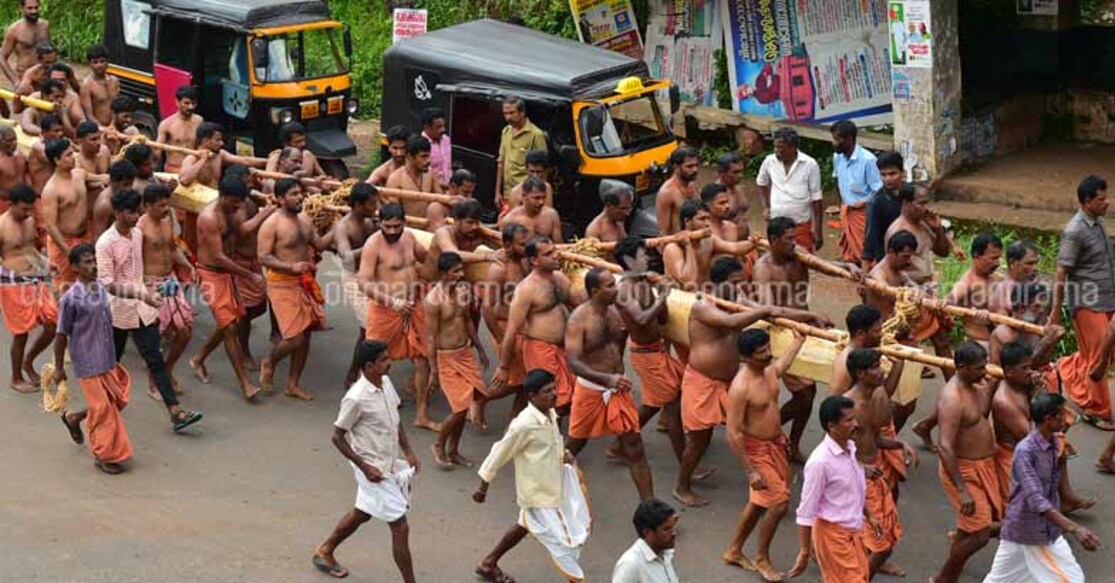Kasaragod prepares for Mahabali's arrival in Thulam - and it is not Onam

Mail This Article
North Kerala has some unique festivals. While the colorful theyyams have become a cultural identity, there are less famous festivals too. Poliyindram, in the Malayalam month of Thulam (October), is a unique festival which celebrates Mahabali's arrival - and no, it is a ritualistic festival, unlike Onam.
Poliyindram is a three-day festival celebrated by the Tulu speaking people in Kasaragod.
The festival
Devotion and rituals form an integral part of the festival. Poliyandram is a festival of lights to worship Mahabali. In the rest of Kerala, we know of him as a just and good king. Here, he is a god, ritually worshiped with lamps and flowers.

Wells are cleaned, and the courtyard of houses are decorated with a three-branched twig of Ezhilampala tree (Alstonia scholaris). This twig is decked with marigold garlands and artistically cut pieces of palm fronds. At dusk, coconut shells are affixed, filled with oil, fitted out with wicks, and lit up.
Families take out an arati - plates containing lamps, flowers, and rice, - and shout: “Poliyandra, Poliyandra, Ariyo Ari”, casting offerings to the tree. In some households, fried rice is bundled in a piece of cloth, placed in a coconut shell filled with oil, and the cloth is lit.

Where can you see the festival?
The Potavatukka temple, 15 km from Kanhangad, has a famous temple dedicated to Dharmasastha where Poliyandram is celebrated. The rituals are for receiving the departed Mahabali on the new moon of Thulam. History records that Deepavali was once observed throughout India as a day when the souls of the departed were treated to ritual feasting.

In Tulu-land, extending from Kanthapuram in Karnataka to Thrikkarippur in Kasaragod, it retains this character. In the north, where Karnataka speakers abound, it is linked with 'Balindra'. The celebratory song signifies: “Great King Bali, this land is yours. Return, across the seven seas. Accept our welcome”.
In the rest of Kerala, Onam is a celebration of Vishnu’s victory. We acknowledge that Mahabali was a great king, but project him as a clownish figure with a protuberant belly, grotesquely made up, and adorning himself with a palm-leaf umbrella. But here, to Tulu-speaking people, Mahabali is a god.

Rituals
Poliyindram rites begin at dusk. The lamps are lit by a person known as Kalasakkaran, from a wick brought lit from the shrine. Kalasakkaran shouts 'Poliyandra', which the gathering takes up. They offer puffed rice and Poliyindra becomes a deity. The festival extends three days. The cry 'Poliyindra Poliyindra Ariyo Ari” is supplemented on the third day with another prayer: Posa varshat bekka balla in Tulu, and Munthina varsha bege ba in Kannada, which translates to 'next year, please come early'.

So, if you are around, do mark your calendar's for this unique festival.
The 10th day in the Malayalam month of Thulam (mid October) also marks the day when theyyam festivals begin.

(Translated from an article published in Manorama Traveller)

